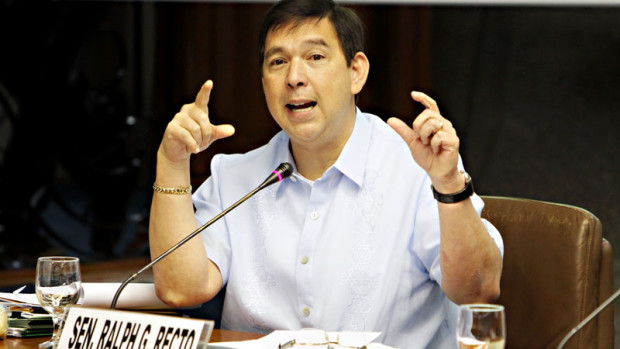Senate President Pro Tempore Ralph Recto on Thursday insisted that the Tax Reform for Acceleration and Inclusion (TRAIN) Law has a “self-executory” provision for freezing fuel excise tax if crude oil reaches the $80 a barrel price mark.
“The tripwire is USD80 per barrel, based on Dubai crude as reflected in MOPS [Mean of Platts Singapore]. Ito ang circuit breaker sa TRAIN. When oil touches this price, suspended ang excise tax increase on gas,” Recto explained in a statement.
Maintaining that the language of the law was clear, he called on the Department of Finance (DOF) to issue a separate implementing rules and regulation (IRR) for the provision to take effect.
“So it must be self-executory and automatically implemented,” he said.
Section 5 of Revenue Regulation 2-2018 states that “for the period covering 2018 to 2020, the scheduled increase in the excise tax on fuel as imposed in this section shall be suspended when the average Dubai crude oil based on MOPS for three (3) months prior to the scheduled increase of the month reaches or exceeds eighty dollars (USD80) per barrel.”
However, “a separate Revenue Regulation shall be issued for this purpose,” the IRR states.
The temporary suspension of excise tax on fuel is being eyed as an option to stop the rise of prices of goods, services and utilities due to the implementation of TRAIN and other factors.
The senator noted that Dubai crude had breached the $75 a barrel price two days ago. The weakening of peso against the US dollar is also a factor, he said.
“Weak peso and soaring prices of oil form a volatile mix when it comes to transport and cooking fuel prices,” Recto said.
Recto said the suspension of fuel tax should be swift as the collection of tax under the TRAIN.
“Walang ‘unli’ na basis ang presyo ng langis. May ceiling dapat. ‘Pag umabot ng $80, stop. The reason being is that government should not profit from high oil prices,” Recto said. /je
